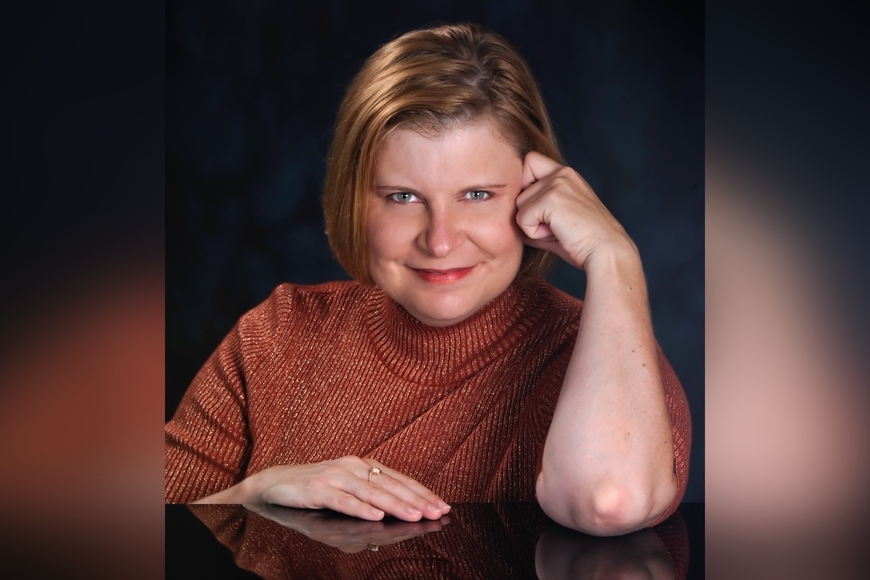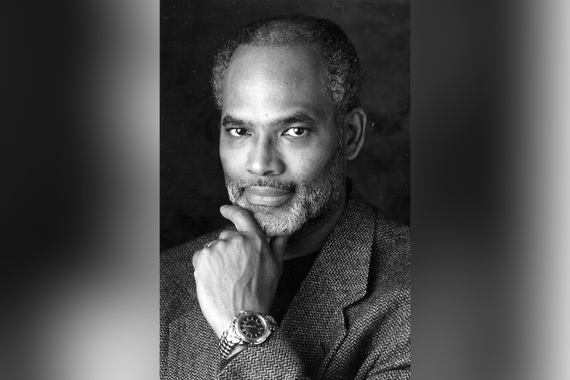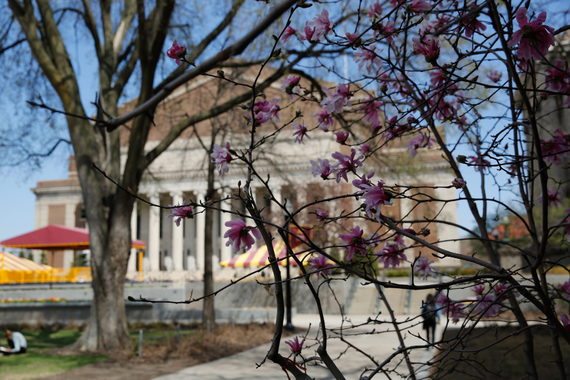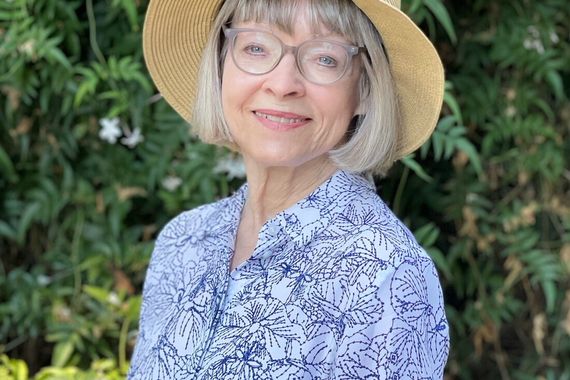Pre-Law Help in the Palm of Your Hand
“There ought to be an app for that”
Professor Barbara Palmer (PhD ‘97, political science) wants a pre-law advisor in your pocket.
And the web-based app she developed, Applawz, serves that exact purpose, guiding pre-law students through every step of the complex and lengthy law school application process. The app provides helpful tips, a customizable calendar, and Palmer’s favorite part, actual applause when the user has completed a certain number of tasks.
Palmer credits her students at Baldwin Wallace University as the inspiration. Four years ago, several of them had applied and been accepted to law schools across the country, so she took the group out for dinner to celebrate. Inevitably, the conversation steered towards the application process and what had gone well, in addition to what kinds of support students wished they had had.
“They all talked about how it was a rollercoaster ride,” Palmer says. “From the mechanics of studying for the LSAT to writing a compelling personal statement, the stress of going through this complicated process brought incredible highs and lows.”
Palmer got to thinking, there ought to be an app for that.
A pandemic-related pursuit
She recalls talking to a good friend who nudged her into taking action, but Palmer was hesitant to pursue it—until the pandemic hit. And then that nudge became a compelling push.
“I was burnt out and desperately needed something else to occupy my time that was fun and creative,” she says. “And because I wasn’t going out, my savings account was a lot larger than usual.” Palmer took advantage of her time at home and began developing the app in 2020.
She also took advantage of the resources she had access to, or as she puts it, “I bothered my friends. A lot.”
A friend of a friend created the app’s wireframe and a fellow faculty member connected her to a developer who wrote the software. Palmer’s students remained at the heart of the project, too, designing the website, serving as beta testers, and helping with the app’s digital marketing efforts. Their feedback continues to influence app updates and overall user experience today.
This process has been its own rollercoaster ride, but Palmer acknowledges it’s all a part of the beauty of entrepreneurship.
“Unless you’re a tech person, most of us just have a cool idea and then you figure it out,” she says. “I’ve had to rely on a lot of other people and I’ve made a lot of mistakes, but I’m really proud of the content of my app.”
The experience has also presented Palmer with the opportunity to model lifelong learning for her students and demonstrate that exciting, transferable skills can be learned at any stage of life.
Responding to the call
Fittingly, Palmer’s journey into academia began with this same love of learning, coupled with an uncertainty about what she wanted to do. As an undergraduate political science major at the University of Wisconsin-Eau Claire, she considered political campaign work and a career in policy analysis, but neither stuck.
Instead, she found herself responding to the “siren call of more education.” She went on to earn a master’s degree in political science and then found her way (back) to the University of Minnesota for her doctoral studies.
Campus was a familiar place. Palmer’s dad Otto had worked as an accountant in Morrill Hall, and later as an accountant in biological sciences, and her mom Mary Ann was both an alum, research assistant in the psychology department, and employee on the St. Paul campus for 20 years. Although the University had not been on her short list of graduate schools, it was Otto who pointed out the prestige of the political science PhD program and encouraged her to apply.
“I applied to seven or eight different schools and realized that Minnesota was the top program that I had been accepted into,” she says. “And the philosophy they had about graduate education was just so different than all of the other schools. They offered five full years of funding—they still do to this day—which makes such a huge difference when you’re a graduate student.
The idea was, ‘we’re going to accept you, we want you to finish, and we want you to succeed.’”
Musings of a ‘frustrated stand-up comic’
During her time in CLA, Palmer learned “the nuts and bolts of how to be an academic,” how to review articles, and how to negotiate her first job offer. She co-authored an article for publication with a faculty mentor, an opportunity that would have been considered rare at another institution but was “very much the culture” at Minnesota. And along the way, she realized just how much she enjoyed “getting paid to learn cool stuff.”
“Through teaching, I discovered that I was really a frustrated stand-up comic and that being able to stand in front of a group of people, teach them something, and maybe make them laugh a little was extraordinarily appealing.”
It’s a discovery that has withstood the test of time and influenced Palmer’s teaching methodology across the country—at Southern Methodist University, American University, and Baldwin Wallace, her current institution. There, she teaches introduction to US politics; introduction to law; women, politics, and law; constitutional law; and civil rights and liberties.
But no matter which class she’s teaching, her focus remains the same: to foster an environment that leads to effective classroom discussions and to tackle common misunderstandings (such as “what is the electoral college anyway?”). Ultimately, Palmer hopes her students remain curious and open-minded as they prepare for law school or whatever adventure awaits them upon graduation.
“What I have come to appreciate over the years is that I do not always see the immediate impact of something I have learned or taught in the classroom. Sometimes it takes years for the light-bulb to go off. And that’s a good thing.”
What does a liberal arts education mean to you?
My dad had the same job and the same employer for over 50 years (and kudos to him!), but that’s not how the economy works anymore. When students graduate, they’ll not only have multiple jobs and employers, they’ll have multiple careers. They are going to find themselves doing dramatically different things over the course of their lifetime. A liberal arts education prepares you for that, the skills to pivot and take on new opportunities and be qualified for what’s next.
A liberal arts education also teaches you to see the world from multiple perspectives; teaches you how to analyze things and how to work on a team. I continually tell my students, in this world, they are going to encounter people who are not like them in the workplace and that’s a good thing! Tons of research shows that diverse teams are smarter. Whether you are working in retail or at a Fortune 500 or as a lawyer, you’re going to encounter diversity and the better you can deepen your worldview and perspective, the better you’ll be at your job – and the happier you’ll be as a human being.



